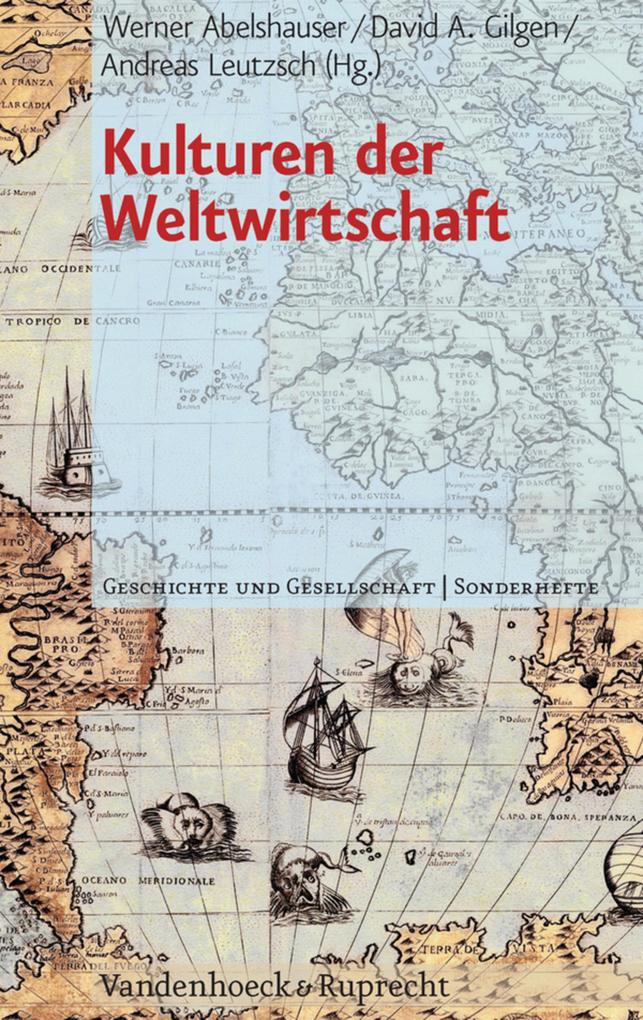
Sofort lieferbar (Download)
The world marketplace is dominated by companies from North America, Europe and East Asia. But what is the role of their respective cultural background in this competitive field? The increasing dynamics of world markets make it all the more urgent to understand the cultural background via scientific research. The authors of this volume have met that call and provide interdisciplinary evidence that cultural differences are what drive economic competition and ensure its future. Both the continuity and the adaptability of economic cultures are analyzed in case studies of both successful and failed attempts.
Inhaltsverzeichnis
1;Cover;1 2;Title Page;4 3;Copyright;5 4;Table of Contents;6 5;I. Was sind und wie entstehen Kulturen der Weltwirtschaft? ;8 5.1;Werner Abelshauser, David A. Gilgen und Andreas Leutzsch: Kultur, Wirtschaft, Kulturen der Weltwirtschaft;10 5.2;Werner Abelshauser: Ricardo neu gedacht. Komparative institutionelle Vorteile von Wirtschaftskulturen;30 6;II. Kontinuität und Wandel von Wirtschaftskulturen ;58 6.1;Raphaële Chappe, Edward Nell and Willi Semmler: On the History of the U. S. Financial Culture;60 6.2;Stephan Merl: Gibt es eine spezifisch russische Wirtschaftskultur? Reflexionen über die administrative Kommandowirtschaftund ihre Nachwirkungen bis heute;86 6.3;Gunnar Flume: Das Modell Schweden. Kontinuität und Wandel einer Wirtschaftskultur;115 6.4;Susanne Rühle: Ein neuer traditioneller Kapitalismus? Die sozialen und kulturellen Bedingungendes chinesischen Wirtschaftswunders im Vergleichzur europäischen Entwicklung;135 7;III. Transnationale Wirtschaftskulturen ;158 7.1;Christof Dejung: An den Grenzen der Kaufmannskultur? Europäische Handelsfirmen in Asien während der Kolonialzeit;160 7.2;Michael Hoelscher: Transnationale Wirtschaftskulturen in Europa. Empirische Befunde;183 7.3;Klaus Nathaus: Nationale Produktionssysteme im transatlantischen Kulturtransfer. Zur Amerikanisierung populärer Musik in Westdeutschlandund Großbritannien im Vergleich, 19501980;203 7.4;Monika Dommann: Musik für Märkte. Autorrechte und Aufzeichnungsmedien seit 1800;229 8;IV. Deutungsmuster im Wandel ;260 8.1;Margrit Grabas: Wirtschaftskrisen in soziokultureller Perspektive. Plädoyer für eine kulturalistisch erweiterteKonjunktur(geschichts)forschung;262 8.2;Roman Köster: Transformationen der Kapitalismusanalyse und Kapitalismuskritik in Deutschland im 20. Jahrhundert;285 9;Autorinnen und Autoren;305 10;Back Cover;306
Mehr aus dieser Reihe
Produktdetails
Erscheinungsdatum
23. Mai 2012
Sprache
deutsch
Seitenanzahl
303
Reihe
Geschichte und Gesellschaft
Herausgegeben von
Werner Abelshauser, David Gilgen, Andreas Leutzsch
Verlag/Hersteller
Kopierschutz
ohne Kopierschutz
Family Sharing
Ja
Produktart
EBOOK
Dateiformat
PDF
ISBN
9783647364247
Entdecken Sie mehr
Bewertungen
0 Bewertungen
Es wurden noch keine Bewertungen abgegeben. Schreiben Sie die erste Bewertung zu "Kulturen der Weltwirtschaft" und helfen Sie damit anderen bei der Kaufentscheidung.








